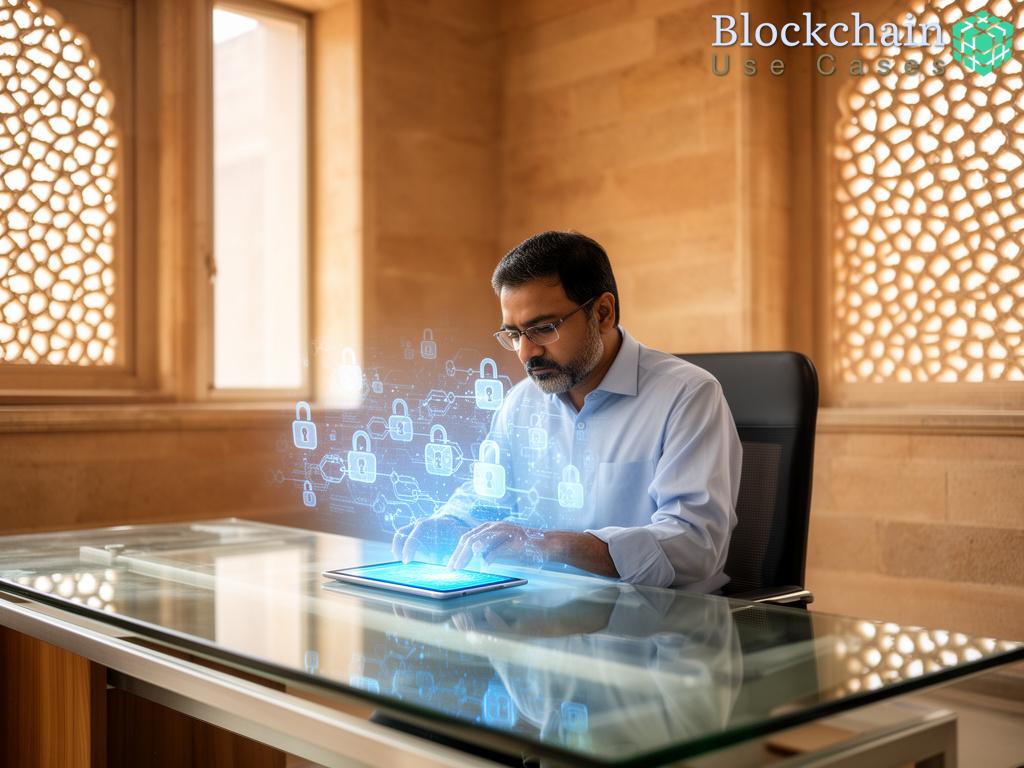The Role of Blockchain in Educational Sustainability
![]()
In an era where the demand for accountability in sustainability practices is at an all-time high, educational institutions are under pressure to demonstrate their commitment to environmental and social responsibility. Blockchain technology presents a revolutionary solution, allowing these institutions to track and verify their sustainability initiatives transparently. By harnessing the power of blockchain, schools and universities can not only enhance their credibility but also engage stakeholders more effectively.
One of the primary benefits of blockchain technology is its ability to create immutable records. This feature can significantly empower various stakeholders, including students, faculty, and the community, by providing them with accessible and verifiable data regarding sustainability efforts. For instance, educational institutions can maintain a transparent ledger of their energy consumption, waste management, and carbon footprint reduction initiatives.
Below is a comparison of traditional tracking methods versus blockchain-enabled tracking:
| Aspect | Traditional Tracking | Blockchain Tracking |
|---|---|---|
| Transparency | Limited; often opaque | Fully transparent; accessible to all |
| Data Integrity | Susceptible to manipulation | Immutable; tamper-proof |
| Stakeholder Engagement | Passive | Active; promotes participation |
| Verification Process | Time-consuming audits | Real-time verification |
With blockchain, educational institutions can foster collaboration with other organizations and stakeholders. By creating a shared platform for tracking sustainability initiatives, institutions can work together to achieve common goals. This collaborative approach not only enhances the effectiveness of sustainability programs but also promotes a culture of shared responsibility.
In conclusion, the integration of blockchain technology in educational sustainability initiatives offers a pathway towards enhanced transparency, stakeholder engagement, and collaborative efforts. As institutions embrace this innovative technology, they pave the way for a more sustainable future while setting an example for others to follow.
Enhancing Accountability through Decentralized Tracking
![]()
As educational institutions strive to uphold their commitments to sustainability, accountability becomes paramount. Blockchain technology offers a decentralized approach that not only enhances transparency but also ensures that all stakeholders are held responsible for their roles in sustainability initiatives. By eliminating centralized control, blockchain fosters an environment where every action can be tracked, verified, and audited, leading to greater trust among students, faculty, and the broader community.
Decentralization is a fundamental characteristic of blockchain that introduces a new paradigm in how educational institutions can approach accountability. With traditional systems, a central authority often oversees the tracking and reporting of sustainability initiatives, which can lead to discrepancies and a lack of trust. In contrast, blockchain allows for a distributed ledger that records every transaction and initiative across multiple nodes. This ensures that:
- Transparency: All transactions are visible to authorized participants, fostering an environment of open communication.
- Security: Data integrity is maintained through cryptographic algorithms, making it nearly impossible for any individual to alter records without consensus.
- Engagement: Stakeholders can actively participate in tracking efforts, contributing to a culture of shared responsibility.
Another significant advantage of utilizing blockchain for sustainability tracking is the ability to monitor and report progress in real-time. This immediate access to data allows institutions to adapt their strategies swiftly, making informed decisions based on accurate information. By leveraging smart contracts, educational organizations can automate compliance checks and reporting processes, ensuring that sustainability goals are met without the need for cumbersome manual audits. Such automation not only saves time but also minimizes human errors, further strengthening accountability.
Through decentralized tracking, educational institutions can cultivate a culture of trust and collaboration. By providing stakeholders with access to verifiable data, institutions empower them to hold each other accountable for their contributions to sustainability initiatives. Furthermore, this collaborative spirit can extend beyond the institution itself, inviting partnerships with businesses and local governments to create a unified approach to sustainability.
Smart Contracts for Sustainable Initiative Management
In the rapidly evolving landscape of educational sustainability, smart contracts emerge as a game-changing tool, leveraging the capabilities of blockchain technology to enhance the management of sustainability initiatives. These self-executing contracts, with the terms of the agreement directly written into code, facilitate real-time monitoring and automatic enforcement of sustainability commitments. This innovative approach not only streamlines processes but also ensures that institutions adhere to their environmental and social responsibilities, all while maintaining a high degree of transparency.
One of the key advantages of smart contracts lies in their ability to automate compliance checks. For educational institutions, this means that as soon as a sustainability goal is met—be it reducing energy consumption or achieving waste reduction targets—the smart contract automatically triggers corresponding actions, such as rewards for responsible behavior or penalties for non-compliance. This seamless integration fosters a culture of accountability, where stakeholders are encouraged to participate actively in sustainability initiatives, knowing that their efforts are recognized and rewarded.
Moreover, the use of smart contracts provides a significant enhancement in data accuracy and reliability. Traditional methods often involve complex paperwork and lengthy verification processes that can introduce errors and delays. In contrast, smart contracts utilize blockchain’s immutable ledger, which guarantees that every transaction related to sustainability efforts is securely recorded and easily accessible. This shift not only boosts trust among stakeholders but also enables institutions to present credible evidence of their sustainability achievements to external auditors and governing bodies.
Another remarkable aspect of smart contracts is their capacity to foster collaboration across various entities. Educational institutions can partner with local governments, businesses, and non-profits, creating a network of shared goals and mutual support. For instance, a smart contract could be established to facilitate a joint initiative aimed at reducing carbon emissions, where each party’s contributions are tracked transparently. This collaborative framework not only amplifies the impact of sustainability efforts but also encourages a unified approach toward achieving broader environmental goals.
In summary, the implementation of smart contracts within the realm of educational sustainability management represents a significant leap forward. It empowers institutions to uphold their commitments through automated compliance, enhances the integrity of sustainability data, and fosters collaborative efforts among diverse stakeholders. As educational institutions continue to embrace blockchain technology, they not only position themselves as leaders in sustainability but also set a benchmark for transparency and accountability in the educational sector.
Data Integrity in Reporting Educational Sustainability Efforts
In the quest for authenticity and accuracy in sustainability reporting, educational institutions face the challenge of presenting credible data that stakeholders can trust. The integration of blockchain technology has emerged as a transformative solution, ensuring that data integrity is upheld throughout the reporting process. By utilizing a decentralized ledger, institutions can mitigate the risks associated with data manipulation, fostering a more trustworthy environment for sustainability initiatives.
One of the standout features of blockchain is its ability to create immutable records, which guarantees that once data is recorded, it cannot be altered or deleted without consensus. This characteristic is particularly beneficial for educational institutions aiming to provide transparent reports on their sustainability efforts. With blockchain, every action related to sustainability can be logged in a secure manner, thereby ensuring authenticity in the reported data.
Blockchain technology simplifies the data collection process by providing a unified platform where all stakeholders can input and access information. This streamlined approach reduces the complexity often associated with traditional reporting systems, which rely on disparate sources and manual data entry. Additionally, blockchain facilitates real-time verification, allowing institutions to continuously monitor their sustainability metrics and swiftly address any discrepancies.
| Aspect | Traditional Reporting | Blockchain-Enabled Reporting |
|---|---|---|
| Data Entry | Manual, prone to errors | Automated, real-time updates |
| Data Integrity | Susceptible to tampering | Immutable, secure records |
| Stakeholder Access | Limited, often delayed | Instant, transparent access |
With blockchain ensuring data accuracy and integrity, educational institutions can build greater confidence among stakeholders, including students, faculty, and external partners. The transparency provided by blockchain enables stakeholders to verify the authenticity of reported sustainability initiatives, fostering a culture of accountability. This trust not only motivates stakeholders to engage in sustainability efforts but also enhances the institution’s overall reputation as a responsible entity committed to environmental stewardship.
Stakeholder Engagement via Transparent Blockchain Solutions
In the contemporary landscape of educational sustainability, the role of stakeholder engagement cannot be overstated. As institutions strive to create a more sustainable future, leveraging blockchain technology to foster transparency is emerging as a pivotal strategy. By providing stakeholders with real-time access to verifiable data, educational institutions can significantly enhance participation and collaboration, ensuring that sustainability initiatives resonate on multiple levels.
Empowering Stakeholders through Direct Access to information is a key feature of blockchain solutions. Unlike traditional reporting systems, where data access is often limited and can be manipulated, blockchain offers a decentralized platform that guarantees transparency. Stakeholders—ranging from students and faculty to local communities and organizations—can engage with the sustainability metrics directly. This system of open access not only encourages accountability but also cultivates a sense of ownership among all parties involved. When stakeholders can see the direct impact of their contributions, it fosters a culture of participation that is essential for the success of sustainability initiatives.
Facilitating Collaborative Decision-Making is another significant advantage of utilizing blockchain for stakeholder engagement. Blockchain’s transparent nature enables various parties to collaborate effectively on sustainability goals. For instance, educational institutions can share their sustainability data with local governments, businesses, and non-profits, allowing for joint initiatives that are well-informed by accurate data. This collaborative framework not only amplifies the impact of sustainability efforts but also encourages a unified approach toward achieving broader environmental objectives. When stakeholders work together towards common goals, they can leverage each other’s strengths, thus driving innovation and enhancing overall effectiveness.
Building Trust through Transparent Reporting is essential in creating an engaged community around sustainability efforts. With blockchain ensuring that data is immutable and verifiable, stakeholders can trust the information presented to them. This trust is vital for encouraging active participation, as stakeholders are more likely to engage when they believe in the credibility of the data they are working with. Furthermore, as educational institutions provide regular updates and insights into their sustainability initiatives through blockchain, stakeholders can witness firsthand the progression toward sustainability goals, reinforcing their commitment to the cause.




